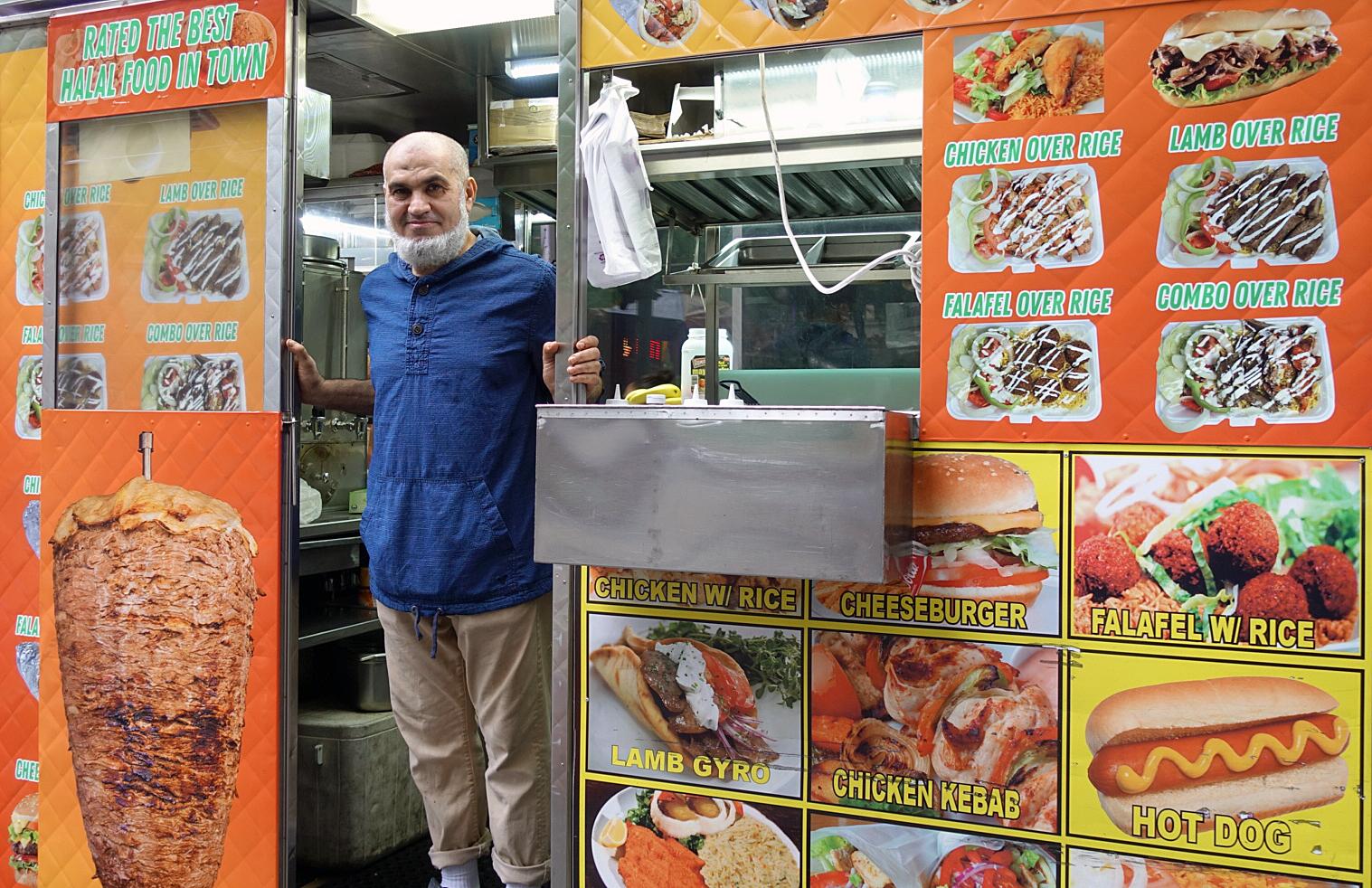Adel Saeed moved to the US from Egypt 41 years ago. He has owned and operated a halal food truck in New York City for 20 years. He says he will never break his fast, even he is offered “millions and millions of dollars.”
Fasting can be tough for pretty much anyone. But what about the men and women who are fasting during daylight hours and spend all day preparing and serving food to the public?
This question got video producer Aymann Ismail thinking. What’s it like to be a Muslim food truck owner during the month of Ramadan? Ismail was born to Egyptian parents and he grew up in New Jersey.
He now lives in New York, so a few days ago he went to meet some Muslims in the food truck business.
“New Yorkers are hungry. They like to eat,” Ismail says. And there are a lot of places to eat, too. “In New York and Manhattan specifically, there’s a food truck on every corner.”
Many of those food trucks serve halal food. “Every single person working these halal trucks is more or less probably going to be a Muslim,” Ismail says. “They’re not all Muslim but for the most part, you can pretty much count on the halal trucks being operated and owned by a Muslim guy.”
So, how does a someone serving food all day — perhaps their favorite dishes — overcome the temptation to sample a bite of their dishes? Ismail attributes it to willpower. “These people are putting themselves to the test,” he says. “Not just their mind but their body and soul cooking in these tin boxes non-stop for New Yorkers. Because they got bills to pay, you know?”
Adel Saeed understands the sacrifice. The Egypt-born man says he has been in the US for 41 years, and he remains steadfast in his resolve. When asked if he was fasting, he replied, “Of course I’m fasting today. You don’t have to ask me this question. Listen to me. If you give me all the money in the world I can’t break one day’s [fast].” Not even for a million dollars or more, he says.
“The best part about fasting,” Ismail believes, “is being tested and having that temptation and feeling like you really are sacrificing something. We don’t eat, we don’t drink, we don’t smoke, we don’t curse, we don’t have impure thoughts. We don’t have sexual intercourse during the day.”
Reza, who didn’t give his last name, has been running his food truck business in New York City for more than 40 years. He says he doesn’t find it hard to cook all day and fast because he’s so used to the smell of chicken.
“Every day chicken, chicken,” he says with a chuckle, “[the] relationship between me and chicken is more than between me and my wife!”
Aymann Ismail explains that if you are fasting in a place like Egypt or any other Muslim-majority country, “you aren’t walking past people eating to the same degree that you are in a place like America. You aren’t having to constantly explain why you’re doing it and having to test your own conviction constantly in the same way that you would in a place like New York. So I love that about fasting in America.”
Ismail says he’s seen his neighbors hide from him while they eat lunch “because they don’t want me to see the food. That’s not what this is about. Part of what makes the human experience so special is the fact that we are all different and that we can learn from each other. So I think we don’t need that. We don’t need people to feel bad for us. We love it. I love it.”
